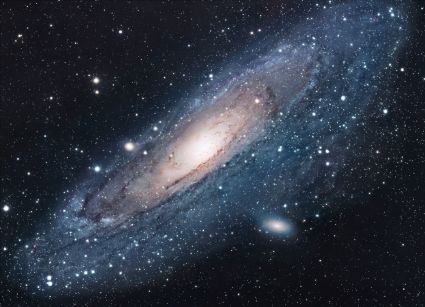Dark Vitalism
In What is Philosophy? Deleuze and Guattari describe vitalism as split between an Idea that acts but is not and a force that is but does not act (p. 213). The recently coined dark vitalism or mechanistic vitalism (dark as in nihilistic but also as attached to the chemical darkness of Schelling’s unground and mechanistic in that it is deterministic) must be articulated in response to Deleuze and Guattari.
D & G’s vitalism is predominantly biological and he aligns the first description with the likes of Kant and the latter with himself. Yet, as Brassier argues in Nihil Unbound, Deleuze’s vitalism is locked in idealism, in the support of virtuality. Brassier opposes a cosmological death drive to the purported ideality of Deleuze.

What is outside of biological immanence is Deleuze’s concept of temporality as differentiation (Nihil, p. 162). Here we dip into Object Oriented Philosophy and, in paritcular, Levi’s discussion of the creation of an object as the difference which makes a difference. Schelling’s whirlpools, or patterns of slowed matter which allows for entities is a bumpy or sloped ontology. That is, in the cosmological cascade following the explosion of primary neubula of matter, various accretions of matter give rise to the very possibility for life and subsequently for thought.
The topology, of where immanence goes, becomes a serious problem for any attempt at recuperating vitalism. As John Mullarkey’s Post-Continental Philosophy makes clear, immanence is the battleground for future philosophy. But, as in the case of Deleuze, Henry, Badiou (and to a lesser extent Laruelle) immanence is not adequately divorced from human subjectivity.
To de-anthropomorphize the force of vitalism, Laruelle’s One, the capacity for the Real, must be taken away from Man. We can take the One as the possibility (and equally non-possibility) of ‘isness’ as such, the Real without content. The One, in a Plotinian fashion, emanates the zeroes of space/time, the repetition of zeroes is immanence is time (the additive function of matter) – the cold dynamics of space im relation to forces, matters and energies.

Meillassoux’s work, in particular his discussion of hyper-chaos and the mutability of the laws of physics. The possible ramifications for supersymmetry for instance, allow for breaking at any point which shifts particle behaviour – the laws change locally and even over time (The Trouble with Physics, 61-62). Gabriel Catren’s contribution to Collapse V addresses Meillassoux’s comments on physics arguing that the anthropic limits he sets up are invalid. Catren argues that Meillassoux sets science between empirical deduction and metaphysical justification.
As Catren argues, science must function not to serve the transcendental I nor to function within a metaphysical cage. Science, must instead function on a non-platform, on an unground.
Filed under: Brassier, Deleuze, Iain Hamilton Grant, Meillassoux, Schelling, Speculative Realism | 12 Comments
Tags: chaos, vitalism

How can you subtract “Man” or humanity as such from immanence? By somehow erasing subjectivity from immanence are you not creating an access problem? What is the relation of “dark vitalism”, which does sound interesting but I fear is as idealistic as Morton’s “dark ecology”, to historical vitalism and the question of cosmic life generally? You have an interesting sketch here, but I’m unsure of its strength. I hope that doesn’t come across as energy-sapping. I’m working on my own theory, contra-Meillassoux and Brassier, of an invariant vitalism or a kind of wisdom inherent in zero being itself.
For me it seems that emergence could take the place of immanence as it exists for humans in that any force of life is seen as organization of matter whereas I think immanence is the possibility of the creation of anything. I think that there is a difference between sense and thought (in the speculative sense) so I am not sure what the access problem is.
Levi made a comment recently that vitalism might just disappear if we know more about the nature of matter and energy. That might be the case which I think is good reason for the vital force coming from the possibility of isnesss itself which we might be able to call nature. I think part of the question is can physics explain even the emergence of the very possibility of existence?
I am unfamiliar with Morton’s dark ecology…